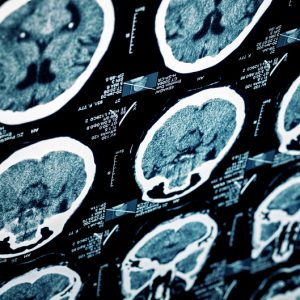
March is Brain Injury Awareness Month. For more than 30 years, the Brain Injury Association of America (“BIAA”) has taken the opportunity throughout March to promote public awareness of brain injuries.
The campaign theme for 2018-2020 is “Change Your Mind”. Using #ChangeYourMind, the campaign hopes to de-stigmatize brain injury, empower survivors and their caregivers, and emphasize the support available to those living with brain injury.
What is a traumatic brain injury?
A traumatic brain injury (“TBI”) is a disruption to the normal activity of the brain that is not caused by degeneration or a congenital issue.
A TBI is often an acute injury that damages the brain and results from a bump, blow, or jolt to the head. Non-injury-related TBIs can result from strokes, infections, or exposure to substances that damage the brain. A mild TBI, like a concussion, might have only a temporary affect on brain cells, while a more serious injury can cause permanent brain damage or even death.
How common are TBIs?
It is estimated at least 10 million people around the world suffer traumatic brain injuries annually. They account for more than 2 million American emergency room visits.
Half of all TBIs are the result of motor vehicle accidents. Other common causes are sports, military combat, and slip and fall accidents.
What are the risks of a TBI?
For serious TBIs, the risks have been long-acknowledged: they can lead to death, impairments in memory, cognitive ability, and emotional functioning, sensory issues, hormonal imbalance, or a host of other problems.
It has been a common misconception that mild TBIs, including concussions, do not have a lasting effect. However, recent research has linked repeated concussions to an increased risk of dementia. The study highlights the need to take safety measures seriously.
How are TBIs diagnosed?
Depending on the severity, a TBI may be diagnosed based on clinical observations of symptoms or with the use of tests like a CT scan. Symptoms can include:
- Persistent or worsening headaches
- Nausea or repeated vomiting
- Convulsions
- Seizures
- Weakness in limbs
- Trouble waking from sleep
- Dilated pupils
- Slurred speech
Recent developments may simplify the diagnosis of serious TBI, though not concussions. The Banyan Brain Trauma Indicator is a test newly approved by the FDA to detect a serious TBI. It is a blood test that can detect two proteins in the brain when they leak into the bloodstream, with the ability to pick up on the proteins within 12 hours of an injury. The new test can cut down on exposure to radiation through CT scans, the usual method of detecting a TBI. Though the test cannot detect a concussion, doctors behind the test are hopeful that a test for concussion will follow.
Protecting your rights after a brain injury in California
A brain injury can leave lasting physical, emotional, and financial effects for years to come. If the injury occurred because of someone else’s negligence, you may be entitled to recover compensation.
Schedule a consultation with Los Angeles traumatic brain injury lawyer Sean Salamati to discuss the circumstances of your case. Facing an insurance claim or court battle alone can be emotionally draining and leave money on the table. We are dedicated to protecting the rights of injury victims and do not charge a fee unless we win compensation on your behalf.
Additional Brain Injury Awareness Month Resources:
- Brain Injury Association of America, March is Brain Injury Awareness Month, https://www.biausa.org/public-affairs/public-awareness/news/march-is-brain-injury-awareness-month
- Brain Injury Association of America, Brain Injury Awareness: Public Awareness, https://www.biausa.org/public-affairs/public-awareness/brain-injury-awareness
- WIVB, FDA approves first blood test to diagnose traumatic brain injuries, http://wivb.com/2018/02/19/fda-approves-first-blood-test-to-diagnose-traumatic-brain-injuries/